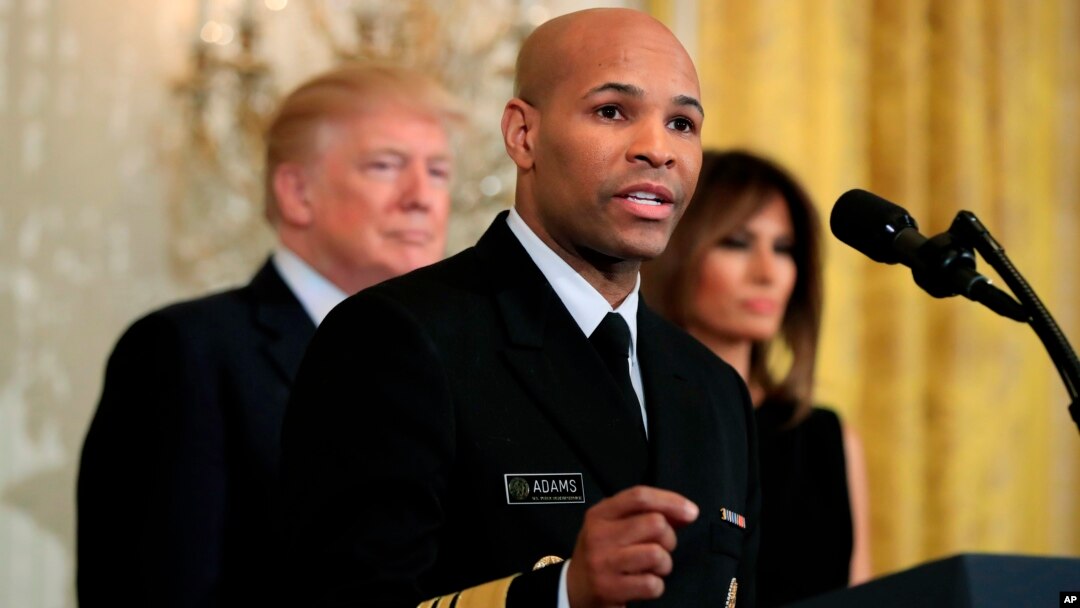The nation’s chief doctor wants more Americans to start carrying the overdose antidote naloxone to help combat the nation’s opioid crisis and save lives.
U.S. Surgeon General Dr. Jerome Adams is expected to speak about the new public health advisory Thursday morning at the National Rx Drug Abuse & Heroin Summit in Atlanta.
In a news release, Adams said he hopes those who are at risk, as well as their friends and family members, will keep the antidote on hand and learn how to use it.
“Each day we lose 115 Americans to an opioid overdose, that’s one person every 12.5 minutes,” Adams said in a statement. “It is time to make sure more people have access to this lifesaving medication, because 77 percent of opioid overdose deaths occur outside of a medical setting and more than half occur at home.”
Fatal opioid overdoses
More than 42,000 Americans suffered fatal opioid overdoses in 2016, his statement said.
Naloxone can restore a person’s breathing after it is injected or sprayed in the nostrils, quickly bringing overdose victims back from near-death.
The drug, which, is often referred to by the brand name Narcan, is available over the counter in most states and is regularly used by first responders across the country. A two-dose pack of Narcan is among many options available and the drug is increasingly covered by insurance, according to The Network for Public Health Law, a nonprofit that helps government agencies.
As of July 2017, all 50 states have passed laws improving naloxone access, the nonprofit said.
A safety net?
Maine’s Republican Gov. Paul LePage has been one of the most outspoken opponents of the push, arguing that naloxone doesn’t treat addiction and merely discourages people from seeking treatment by essentially offering a safety net if they do overdose.
Proponents, however, argue that greater access to naloxone doesn’t draw people to illegal drug use or foster an addiction.
“To manage opioid addiction and prevent future overdoses, increased naloxone availability must occur in conjunction with expanded access to evidence-based treatment for opioid use disorder,” Adams said in a statement.
Adams’ recommendation for more people to possess naloxone comes a month after Philadelphia’s health department urged residents to do the same.
Before his current role, Adams had been Indiana’s health commissioner, where he promoted needle-exchange programs aimed at stemming the spread of diseases among intravenous drug users.


